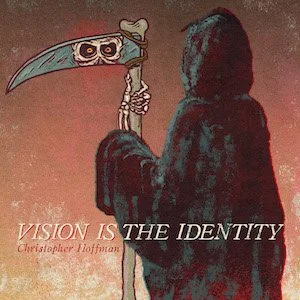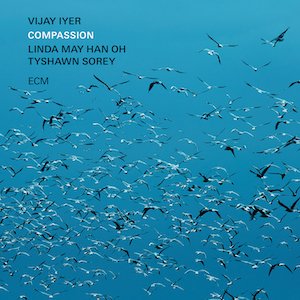Label: Sunnyside Records, 2024
Personnel - Jamie Baum: flutes, spoken word; Jonathan Finlayson: trumpet, spoken word; Sam Sadigursky: alto saxophone, clarinet, bass clarinet; Chris Komer: french horn; Brad Shepik: guitar, singing bowls; Luis Perdomo: piano; Fender Rhodes; Ricky Rodriguez: acoustic and electric bass; Jeff Hirshfield: drums // Guests - Theo Bleckmann: voice (#4); Kokayi: voice (#6); Sara Serpa: voice (#5,7,8); Aubrey Johnson: voice (#3,6,9); Keita Ogawa: percussion (#1,3,10).
During the pandemic confinement, flutist Jamie Baum, renowned for her modern artistic vision and noble artistic conscience, found inspiration in poems posted on Bill Moyers’ website, composing music that responded to the challenges of the time. Her fifth septet album, What Times Are These, was orchestrated with specific voices in mind, encapsulating this response to the pandemic.
Bookending the album, both featuring the percussive talents of Keita Ogawa, are “In the Light of the Day” and “In the Day of Light”, related yet distinct in sound. The opener introduces a repetitive piano note and regular chiming vibration before low-pitched melody inundates the bustling pulsation created by the collective’s forward motion. Before the strong counterpoint returns, you can indulge in head-spinning solos from Baum and trumpeter Jonathan Finlayson. The closing piece completes the whole cycle, smoothly surfing in polished waves of funk and percussive juxtaposition, with pianist Luis Perdomo taking the spotlight.
Among the highlights is “An Old Story”, a funk crusade where Finlayson reads a poem by Tracy K. Smith and explores rhythmic figures within his sophisticated brass terminology. Vocalist Aubrey Johnson also puts chromatic and intervallic boldness to good use. “In Those Years” features Theo Bleckmann’s luminous vocal work and a compelling, energetic alto statement by saxophonist Sam Sadigursky, while “Dreams” offers a half-grounded, half-provocatively loose experience touched by magical counterpoint and nice melody.
Portuguese singer Sara Serpa shines on “My Grandmother in the Stars”, demonstrating vocal, facility, plasticity, and range. The song’s featured poem by Naomi Shihab Nye about her grandmother in Palestine deeply resonated with Baum, who dedicates this 7/4 excursion to her dementia-affected mother, Edie. On a completely different register, Kokayi introduces “Sorrow Song” with words of wisdom and hip-hop energy. Despite the title and Lucille Clifton's poem about war-victimized children, this groovy funk act feels more uplifting than desolating. The awesome melodicism and sound of guitarist Brad Shepik sparkles not solely within this realm but also on “To Be of Use”, a vehicle for key shifting and intricate meter.
The Jamie Baum Septet+ breathes as a unit while also encouraging the individualism of its members and guests. In addition to the power of words, the universal language of sounds envelops the listener with arrangements that include lustrous textures and tight grooves.
Favorite Tracks:
01 - In the Light of the Day ► 03 - An Old Story ► 04 - In Those Years








































